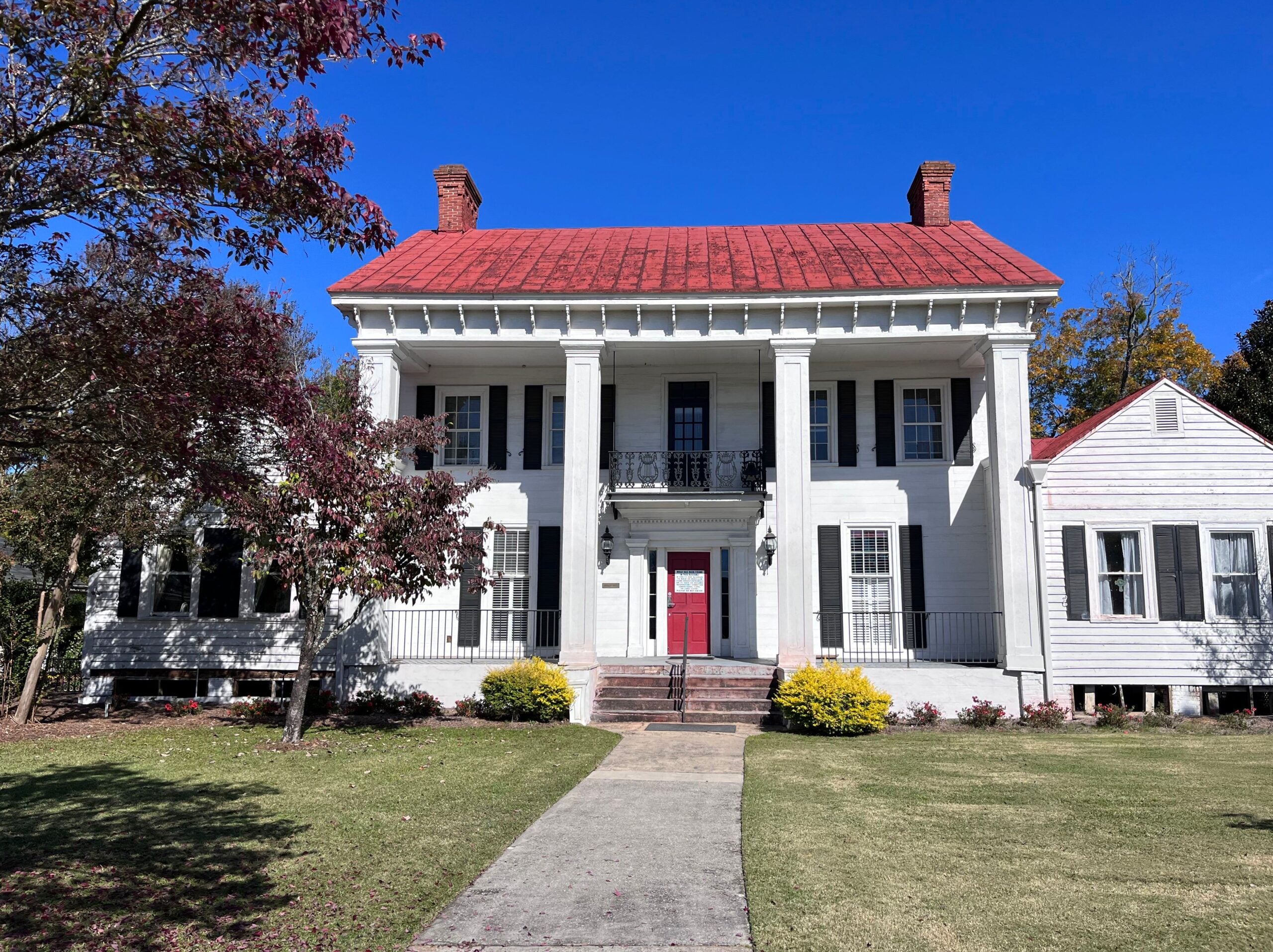An antebellum house in Columbia County is slated for demolition, Monday, after a three-year struggle to preserve it.
Stuart Hall, formerly called Cedar Grove Plantation, is a two-story, Italianate style home on the campus of Our Savior Episcopal Church along Columbia Road in Martinez.
Benjamin Berry built the house as his family home in the early 1850’s. The property would change owners over the years, accommodating guests the likes of President William Howard Taft in 1908.
In 1965 the Episcopal Diocese of Georgia purchased the property. Renamed Stuart Hall, after then Bishop Albert Stuart, the house served as the home of a burgeoning Episcopalian community in Martinez, which would become Our Savior, until the late 1970’s.
“The congregation used the white house for everything,” said Rev. Al Crumpton, rector of Our Savior Episcopal. “It was the worship space, it was Sunday school rooms, the nursery, the office space, it was everything. So they just used different rooms within the house exclusively, until they built the church that we are in today.”
The church gradually developed the land, building its sanctuary, parish hall and offices, and finally its education building in 1987, using Stuart Hall less and less as items were moved out into the new structures.
In 2021, the church’s buildings committee, while conducting its annual inspection of all the structures on the property, discovered an odor in some areas of the house. A later professional inspection concluded that its source may be a black mold infestation.
The parish then conferred with the bishop and the chancellor of the diocese, who then instructed the congregation to discontinue use of the building out of health concerns. A warning sign was posted on its front door urging visitors not to enter.
“We stopped using it as meeting space,” said Crumpton. “But again, it was getting very little use at that time.”
The cost of removing the mold, Crumpton explained, would be upward of five figures, without the guarantee that it would not return in a matter of months or even weeks.
To address the underlying problems attracting the mold, the vestry of the church voted to launch a process to take its next steps. Further inspections ensued as the parish explored options to refurbish the house to bring it up to code.
This scrutiny didn’t yield promising news. Architects and inspectors discovered more than 120 issues with the building, including structural, electrical and water damage. Between these and the mold, the price of repairing the house for safe use and to maintain it after those renovations was an estimated $1.1 million.
In the ensuing years, the church tried to solicit more interest in preserving Stuart Hall. There was media coverage, including in TAP. The Georgia Trust Foundation placed the property on its list of Place in Peril for 2024.
The church established a fundraising committee to formulate a plan within a year to pay for the repairs. There were two parish listening sessions, where church members could learn more about the state of the building and offer comment on what to do.
“From the feedback of the listening sessions, the vestry had to make a call,” said Valerie, Rev. Crumpton’s wife. “Because they found that the fundraising proposal and needed more time and the business ideas proposed were not sustainable, they had to make that difficult decision after much deliberation.”
The fundraising committee and the vestry took several months discussing options, as the prospect of raising an amount close to the seven figures to repair Stuart Hall grew increasingly daunting.
“We applaud them for the effort, because they put in so much work into it, heart and soul into it,” Valerie Crumpton said.
The last option presented by the committee was to offer to give away the house, allowing anyone who would pay to remove the structure from the property to do so. The offer ultimately drew no prospects.
“It’s not a happy moment, but it’s reality,” said former Columbia County Commissioner Bill Morris, who was among those who aided with this effort. While not a parishioner at Our Savior, Morris is a fervent student of local history, and is experienced in refurbishing old houses.
“I think under the circumstances the church and some other people did about all they could,” Morris said, lauding the care the church gave the building. “If you’ve never restored an old antebellum two story house, you really have no idea what all takes. Time and money, it’s just a big undertaking. I’ve done it myself, and this is huge, but at the end of the day, I think it’s worth it.”
In anticipation of its removal, parishioners — many of whom have been lifelong worshippers at the church and have several cherished memories of the building — were allowed to take pieces of Stuart Hall. A piece of brick, or broken wood, or religious icons or bric-a-brac.
Morris salvaged several interior doors and mantlepieces, side braces and other pieces of the house.
After the demolition, Our Savior’s next phase will be formally commemorating Stuart Hall’s legacy, documenting stories and collecting artistic renderings of the old house, to honor not only its use by the church, but its nearly 200 years of history, from the Barry family to the enslaved people who worked the plantation, said Valerie Crumpton.
“History cannot be erased. History has happened. It will always be history,” she said. “We feel the grief of some of our members, you know, but we also honor that, and by wanting to create and commemorate what once stood there.”
Skyler Q. Andrews is a staff reporter covering general reporting for The Augusta Press. Reach him at skyler@theaugustapress.com












